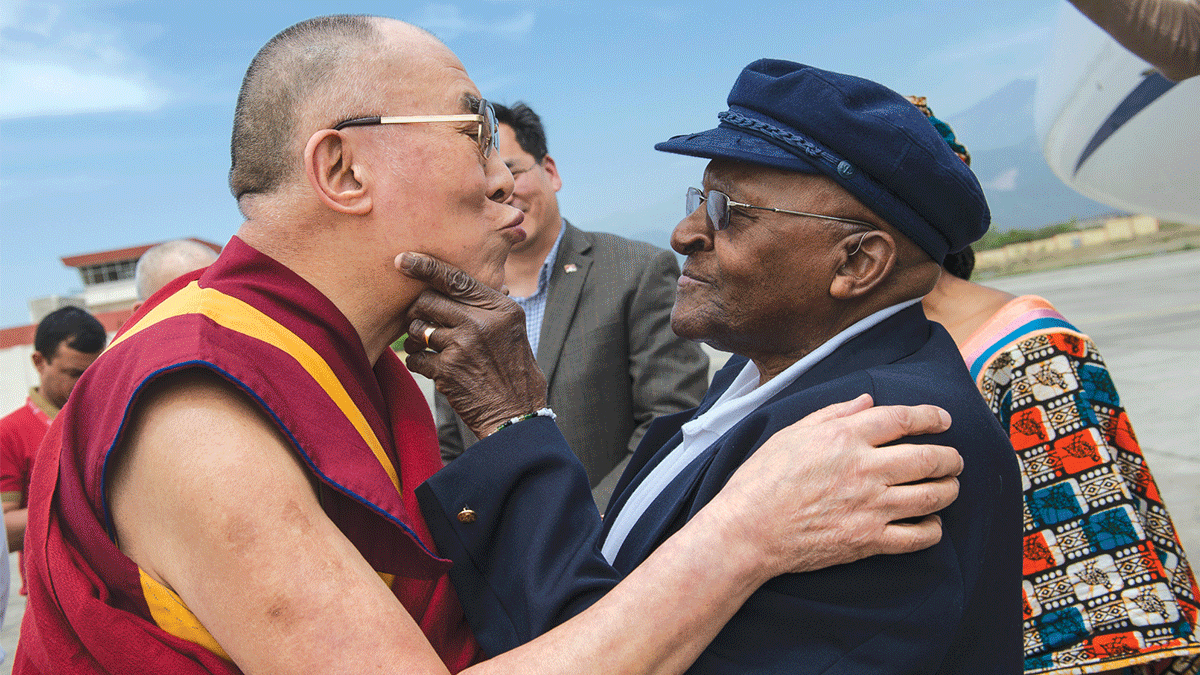
It is another month and another great book has my attention. It is “The Book of Joy: Lasting Happiness in a Changing World” His Holiness the Dalai Lama and Archbishop Desmond Tutu with Douglas Abrams. The authors share their wisdom and tips how to find joy in the face of life’s inevitable suffering. The main part of the book describes a special five day visit together. It is filled with intimate stories as well as what they believe to be the obstacles to joy. The book continues to describe Eight Pillars of Joy and daily Joy Practices that anchor their own emotional and spiritual lives.
This book came at such a great time for me because a few weeks ago I completed a weekend workshop about mindfulness and meditation. Both learning opportunities shared a strong belief that we must take care of our inner or mental/emotional body just as much as we take care of our outer or physical body. In fact, some may argue it is even more important for us to experience joy and overcome suffering.
The Dalai Lama talks about the importance of mental immunity. “It is learning to avoid the destructive emotions and to develop the positive ones. First, we must understand the mind – there are so many different states of mind – the diverse thoughts and emotions we experience on a daily basis. Some of these thoughts and emotions are harmful while others are healthy and healing. The former disturbs our mind and causes much mental pain. The latter brings us true joyfulness.”
My own experience has helped me process these words and teachings and inspired a daily meditation practice. I now sit for 5-10 minutes every day and complete a pranayama and meditation practice. What I do varies depending on what I need. These teachings exposed me to a wide variety of practices and I am able to pick one that is just right for me at that moment. My dukkha, or suffering in Sanskrit, is less (and/or at least doesn’t last as long as it used to) and my sukha, or happiness and ease, lasts longer and is found in all parts of my day, not just the BIG moments.
We must all remember that being mindful or meditating doesn’t have to be some special practice with candles, essential oils, mala beads or music. All of those things can help set a special environment, but is not necessary. All we really need is our breath and the desire to turn inward. AND there is no “bad” meditation. Any time you sit and tune-in is valuable for your mind and body. The benefits of meditation and mindfulness are great and it is supported with a large body of research and evidence.
A few of these benefits include:
- Stress reduction
- Improves focus and attention span
- Increases resiliency
- Improves learning and memory
- Enhances creativity
- Decreases inflammation
- increases immune function
- increases and improves relaxation and sleep
- Helps with pain
Please join me on this journey throughout the month of April. We will practice a different type of meditation each week. I hope it inspires you to create a home practice and enjoy the vast benefits as you take care of your inner body and develop “mental immunity.”

